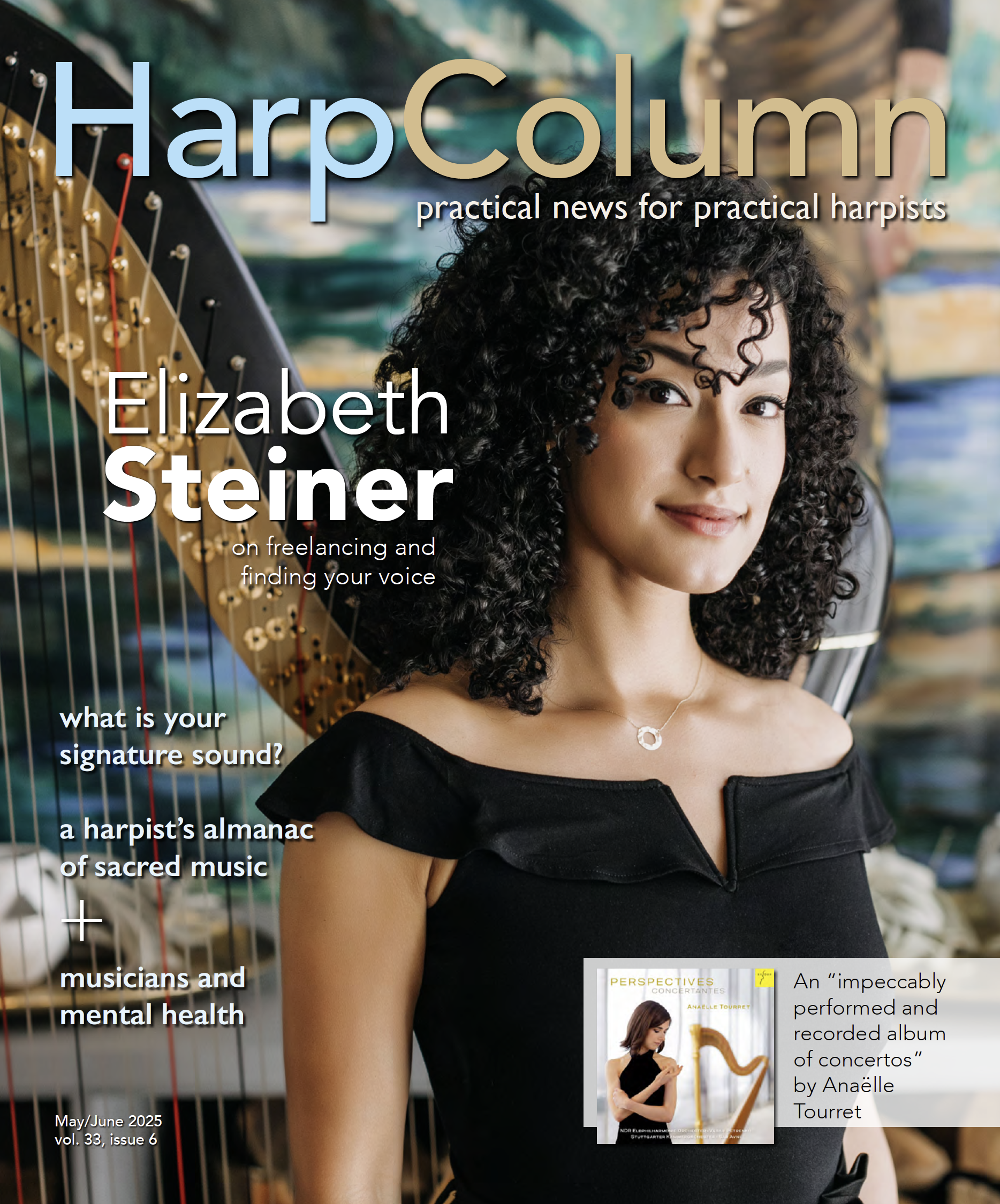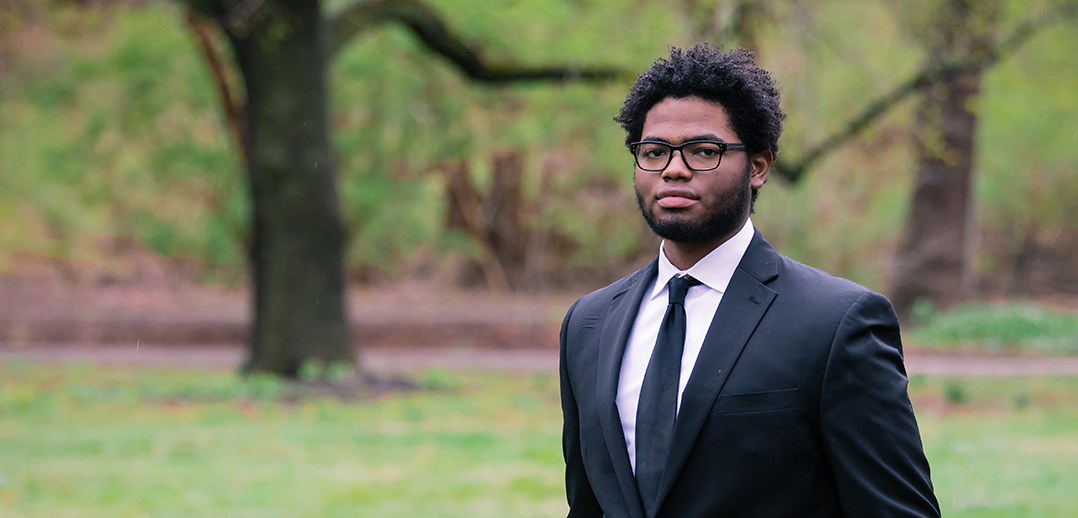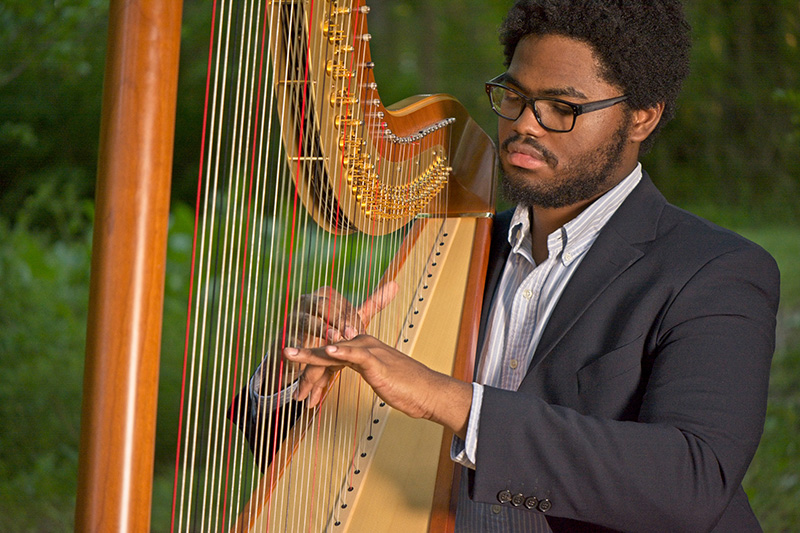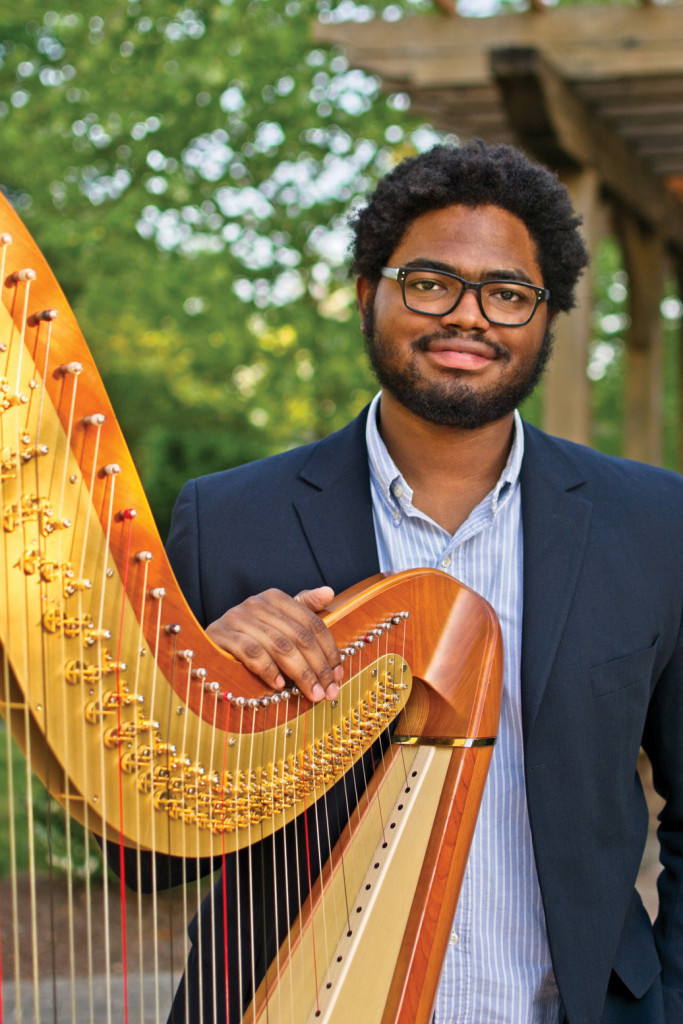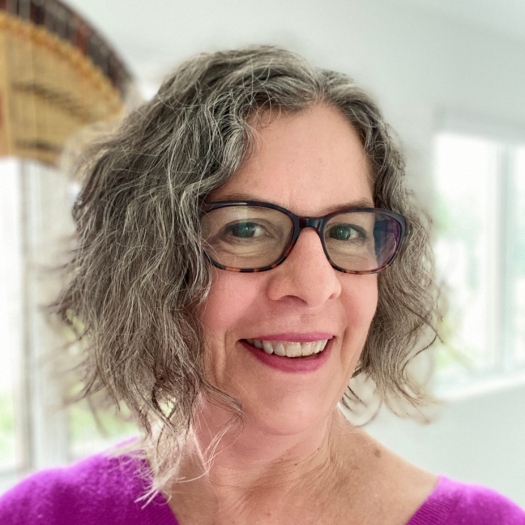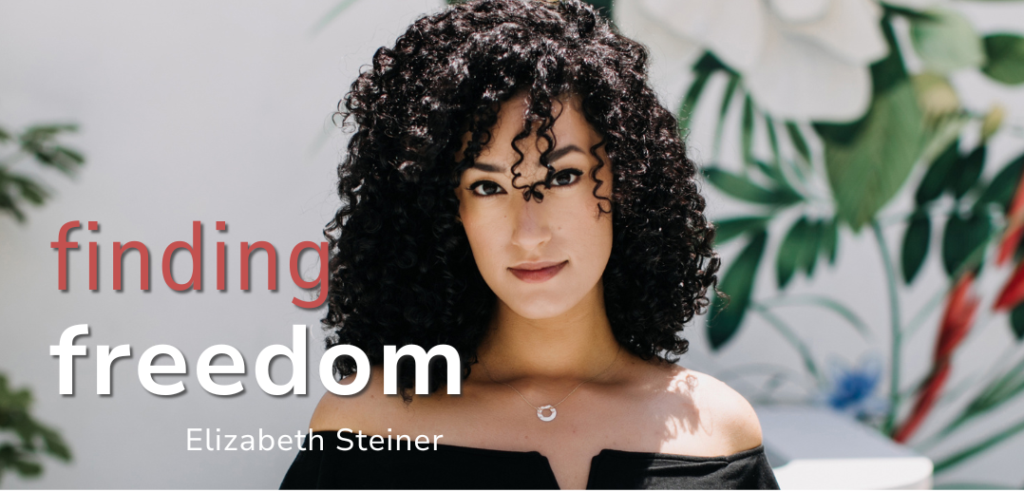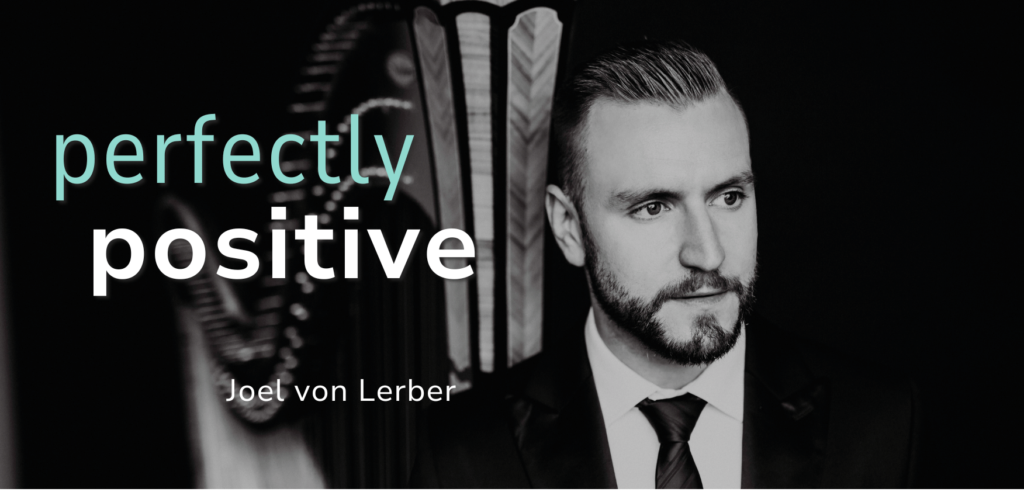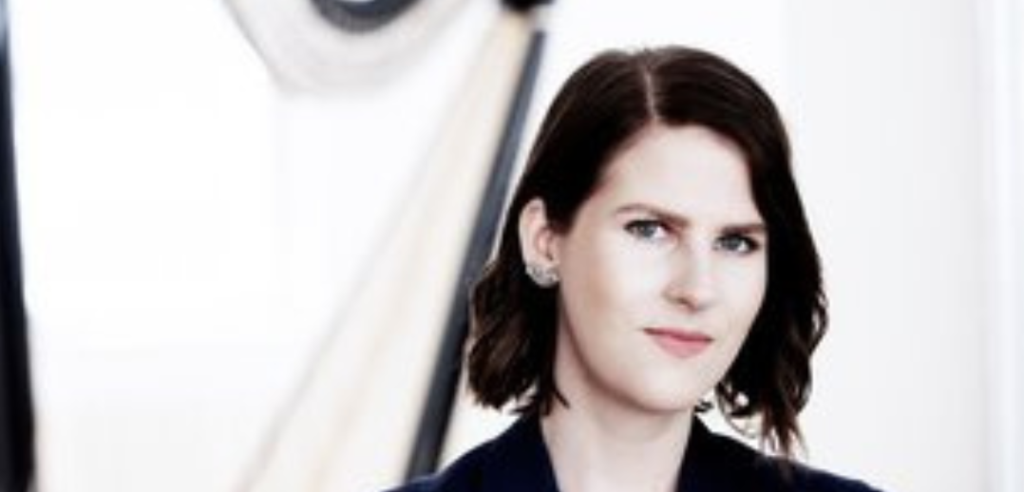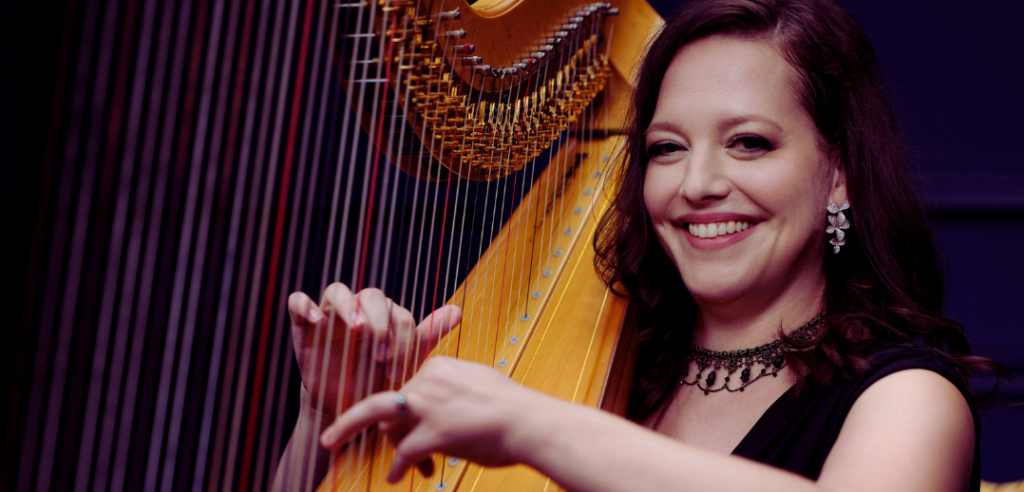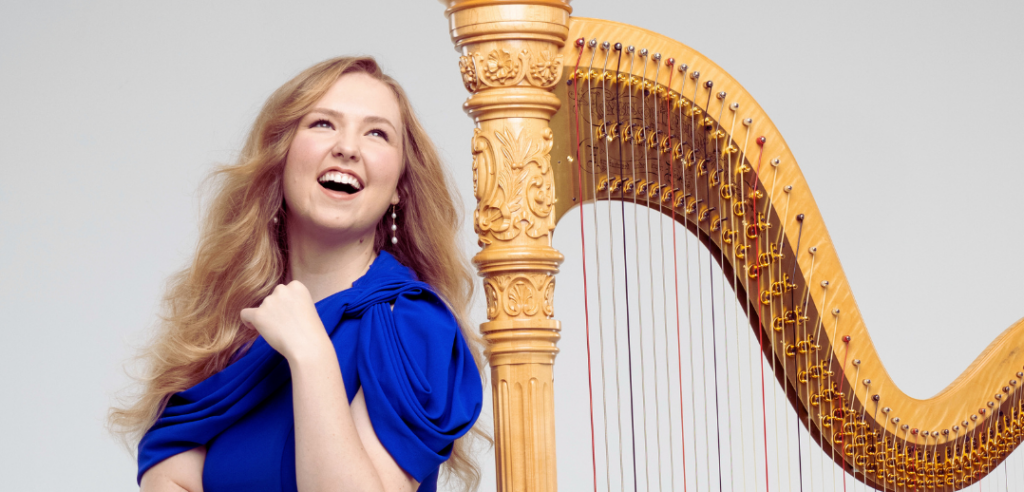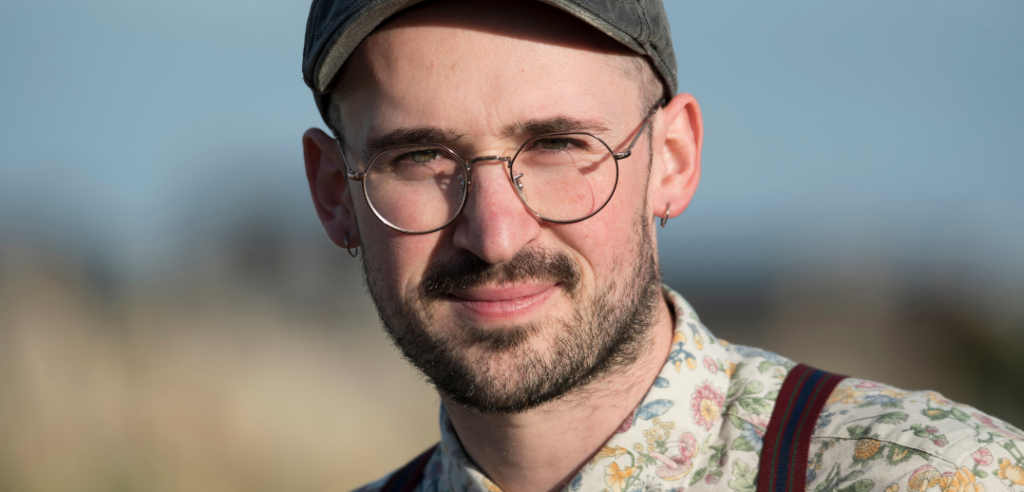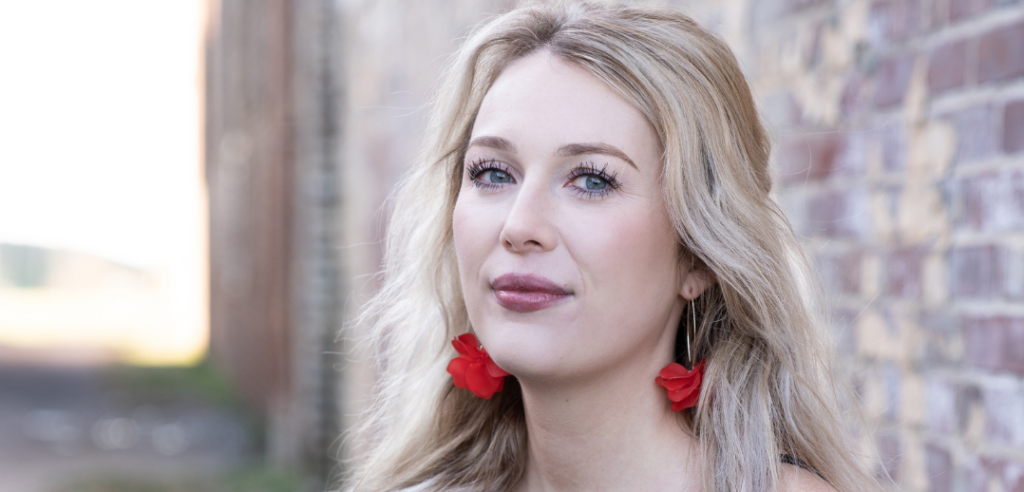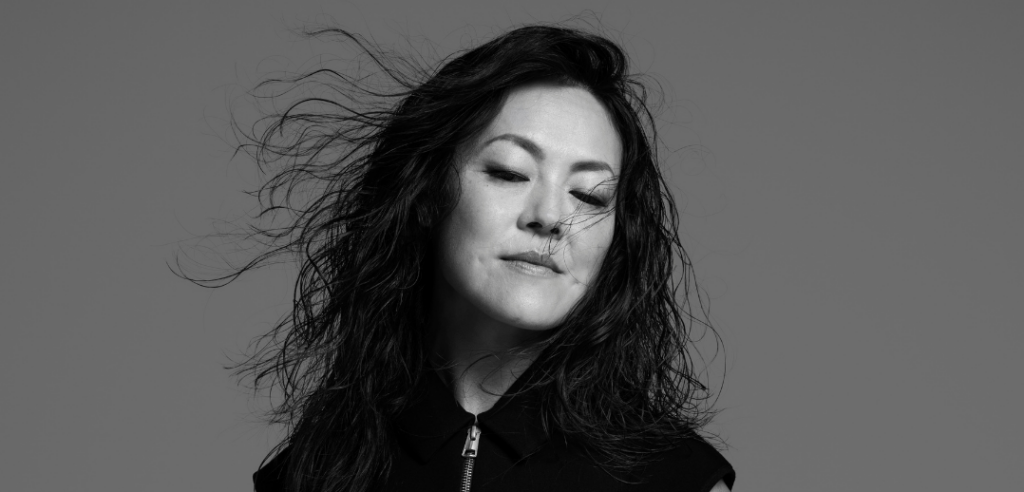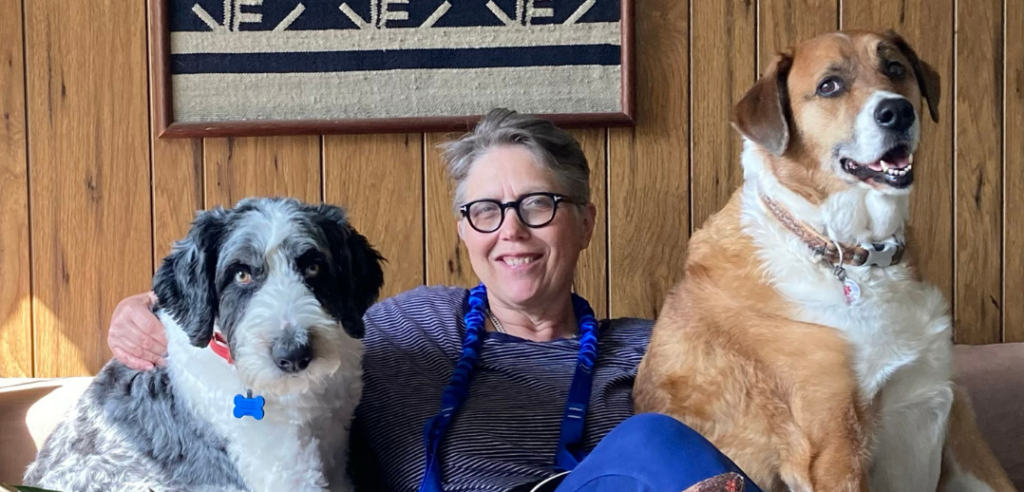A lot of harpists I know don’t like labels. In fact I was once reprimanded by a well-known jazz harpist who didn’t like the term “jazz harpist” for fear it would paint her into a box. The truth is, most harpists—most musicians for that matter—can’t wear more than one label. We do paint ourselves into boxes that are hard to escape from. But that clearly hasn’t been a problem for Charles Overton.
Equally comfortable on stage with a major symphony orchestra, playing chamber music at Marlboro, or jamming with his eponymous jazz trio, the Charles Overton Group, he is in the process of designing a career that spans every musical genre. If you’ve known him for a while—like I have—none of this comes as any surprise. What is surprising is how confident and self-assured Overton is with building a customized career in a rapidly changing musical world.
I caught up with him in Boston to find out more about how he’s doing it, and I think you’re going to find his answers as fascinating as I did.
Harp Column: When did you know you wanted to be a professional harpist.
Charles Overton: Pretty early on into playing harp. I started playing harp at the end of the fourth grade because [harp teacher] Lynnelle Ediger was the music teacher at my elementary school. She just pulled me aside after school one day and was like, “Go home and tell your mom that you need to play the harp.” I don’t know why, if it was the way I sang in choir or what it was. But I took to it. I had a trial lesson. I was playing the violin at the time and had been for six or seven years, but I sounded awful. Like every kid I just didn’t want to practice. I like to think I didn’t want to because it’s right in the ear and it’s so high and shrill. If you don’t sound good, it’s painful.
Any success or failure is all contingent on me and what I do. It’s a new kind of responsibility and accountability that you don’t really have while a large institution plays a large part in your success or failure.
HC: They say everybody has to find their instrument.
CO: Exactly. I’m lucky that a harpist taught at my elementary school. I tried it out with Lynnelle’s [American Youth Harp Ensemble] program. Her harp ensemble program is amazing. With the violin, I pretty much played alone. I went to lessons. I played in a recital. There was the occasional group class, once in a blue moon. With Lynnelle’s program you’re immediately shoved into harp ensemble and it’s super fun. You get to play this instrument. You get to make friends. With our ensemble they tour. I think within the first two years of playing the instrument, or maybe it was three, the ensemble took me to Paris, to Italy, we went to Portland, Ore., to Carnegie Hall. I couldn’t have been playing more than four or five years. Seeing that through playing the harp I can travel, I can make great friends, I can have all these experiences, it was a pretty easy decision that, yeah, I definitely want to play this instrument professionally.
HC: How old would you say you were when that happened?
CO: The final push was when I went to BUTI, Boston University Tanglewood University, when I was 13. After that summer I was sold.
HC: You were young.
CO: Yeah, super young. I don’t know what it was. It really clicked.
HC: Then you went on to Berklee. I know that school has a reputation for training musicians for the real world rather than a conservatory, traditional background. Here’s my question for you: What do you think it means to be a musician in the real world today?
CO: There’s a lot to that question.
HC: I know. It’s a loaded question.
CO: There are a few different things. The first thing that comes to mind is entrepreneurship, which is something that different schools teach in very different ways. I’d have to say that my entrepreneurial spirit has come from my parents, first and foremost. Being at Berklee definitely trains you in certain real-world aspects. The main way is that Berklee is a very large school for a music school. It was about 4,500 students [when I was there], maybe it’s grown since then. They don’t exactly provide each student with a mentor to specifically mold you and guide you into the person and musician that you can be. All the resources are there but you have to know where to seek out and find them for yourself. Kind of take note of what’s around you. How stuff makes you feel. What feet you want to have into which doors of music. You have to really know who and what you want to be with music and then seek out the opportunities. I feel like that’s very real world. There’s not anyone holding your hand. There’s not anyone telling you, “Hey, this is next for you,” which had been my education up until that point. You have a harp teacher and they tell you to varying degrees what to do and they tell you what they think is best for you. You have a little bit of say, but really it’s just, “I see for your development that you would flourish and do well in this environment.” I don’t feel that to be the case with my Berklee experience.
HC: Is there a particular class you took at Berklee that resonated with you?
CO: It was more than just a class. Berklee has this thing called the Global Jazz Institute which is a small specialized program of maybe 30 students where you just get to work very one-on-one in an intimate environment with master jazz artists. The artistic director of the program is a jazz pianist named Danilo Pérez. He’s a genius. I got to work with him, Joe Lovano, Terry Lyne Carrington, John Patitucci, all the best jazz musicians touring and playing in the world one-on-one, had lessons with them once a week. Honestly being in that environment taught me so much about what it means to be a jazz musician. Even beyond jazz, what it means to be an artist, to think more of that angle of music.
HC: I want to hear more about that, but I want to also ask you, because you just mentioned a few minutes ago, getting an entrepreneurial mindset from your parents. How did that happen? What did your parents do to give you that?
CO: There’s a couple things. The first is that they led by example.
HC: What’s their business?
CO: None of them own their own businesses. My dad is the general manager of a Px, a Marine base exchange at Quantico. It’s basically a mall or shopping center for Marine families. That’s what he does. My mom’s in pharmaceutical sales. There are many things that go into entrepreneurship. They definitely taught me the financial responsibility first and foremost just by leading by example. When it came time to graduate from college, I was pretty burned out. It sounds pretty dramatic, but being in school for a while and just having all this stuff thrown at you. Some of it has stuck and some is still swirling around in your head and you don’t know what to think about anything. I came to my parents with the proposition of, hey, I don’t want to go straight into grad school. I want to take a moment and kind of collect myself. They were really supportive. “Yes, go figure it out. Work. Do your thing.” That came with very real conversations about, “If you’re not doing school, you have to think about what active steps you can take in building and shaping your music career while you figure stuff out. Don’t just be stagnant. Continue to take those steps.” To get really specific my dad said, “I really don’t know what the jazz community or the jazz profession looks like, I really only know what classical music looks like—you get your master’s, you audition for jobs, all that kind of stuff. I would say to hit up a different jazz club each week or each month. Send them your CD. Do different things. Do anything to get your name out there.”
HC: This is actually a question I had for you. That time between graduation, or just shortly after graduating, can be a really difficult time.
CO: It really can.
HC: You said you were burned out. Would you say that was your biggest challenge? What would you say your biggest challenge has been?
CO: I’d say my biggest challenge in the transition from leaving school is having all the time in the world, and basically when you’re no longer in school, you have nothing to blame for anything.
HC: So time management, only it’s kind of the opposite?
CO: You have too much time. Any success or failure is all contingent on me and what I do. It’s a new kind of responsibility and accountability that you don’t really have while a large institution plays a large part in your success or failure. Succeeding in classes is your own effort, but it’s different than, whatever I do with my life is now completely on me and how I spend my time. Coming to grips with that was definitely the biggest transition. It took some months just spending my time really poorly.
HC: But you kind of need that too when you’re burned out and just coming out of school.
CO: Exactly. I told myself that my parents might not like this, but I know that personally after getting burned out that I need to just do nothing and get tired of doing nothing to the point where now I want to practice. I want to think about these jazz comps. I want to learn more. I want to go out and read. Begin to shape my life in a different way.
HC: How do you spend your time?
CO: That’s a tough question. It really depends on the week. The essential parts of my day are administrative work which is basically responding to emails, making sure my bio, resume stuff is mostly updated, website maintenance. I’m not perfect so stuff can get out of date but these are areas that I make sure to touch upon at least once a day. Practicing both jazz and classical, whether it’s for something I have coming up for a competition, a gig, whatever. Seeking out future opportunities, competitions, different ways of furthering my career. Right now I’m preparing to record a new album on the jazz side of things, so I’m making arrangements, looking into recording spots. Then obviously there are gigs. Depending on how many gigs a week or what kind of gigs I have determines how much time I have to spend on those other things.
HC: You’ve talked about practicing both classical and jazz. I have some questions for you about that. Rumor has it that you applied and were accepted at Juilliard.
CO: Yep. That’s true.
HC: Why did you turn that opportunity down?
CO: It’s Juilliard. It’s the thing that people think of when they think about going into music. I definitely didn’t take it lightly. It’s not like I turned my nose up at Juilliard in any way, shape, or form. When I was applying and considering my college options I really had a little test of faith in that I just didn’t know what the future was going to look like for me in the harp. I knew I wanted to play the harp professionally and I wanted to make my life and career centered around music, but I didn’t know what that specifically looked like. During my senior year of high school the ideal situation that I saw was playing in an orchestra, top five, big orchestra, full time, being a principal harpist somewhere. That would be phenomenal. At the same time, while I love orchestral music, as you know, our role is somewhat limited. The harp brings a real special color and flavor to the orchestra that’s undeniable. At the same time I feel like we don’t contribute in the same way that a more active instrument like violin.
HC: You didn’t see yourself in that position forever.
CO: I felt that there had to be something more. Not that that’s not fulfilling, I don’t want to say that. Also, to get that job—to be lucky enough that the timing worked out that a job opened and I happened to be the best of basically a generation to win a job like that—the odds of that happening are slim already. How can I preserve my love of classical music and still pursue that? What other options are there? In my senior year of high school I took a jazz theory class that I really enjoyed and I had been exposed to jazz way early on with Lynnelle’s program. What school is going to allow me to explore options in jazz improvisation and this whole other side of music that we don’t get to fully see so often as classical musicians. I was looking at Oberlin [Conservatory] as well. They have a jazz program as well and I had talked to them about whether I could participate. I really felt that knowing myself I needed an immersive experience and not just one where I’m in the classical program and can take a class or two. It had less to do with picking another conservatory over Juilliard and just that I knew I needed a different experience in college.
HC: That’s really amazing that you were able to make such a clear decision. You probably had people saying, “What are you doing?”
CO: I was lucky though. I had a lot of help. Again my parents are the number one influences in my life. When I told them what I was thinking they were like, “We know you’ll make the best decision but reach out to all these people.” So I talked to Felice Pomeranz who teaches at Berklee. I talked to [jazz harpist] Park Stickney basically just to see if I was crazy for wanting to explore this whole area, because I did have those people in my ear like, “You must be crazy!”
HC: I’m going to ask the obvious follow up question here. It’s six years later. Are you happy with the choice you made?
CO: One thousand percent. I’m 1,000 percent happy with the choice I made because not only did I get to go to Berklee, but while in Boston I still got to take classical harp lessons from Jessica Zhou, the principal harpist at the Boston Symphony Orchestra. I don’t feel like I lost anything or lost any time pursuing classical music. I played in this orchestra called the Boston Philharmonic Youth Orchestra, which is half high school half college students. It’s basically a 21 and under orchestra. So I got to play in orchestra. I don’t feel like I’ve lost anything, only gained opportunities.
HC: You have gained opportunity because I looked on your website and I saw that you’ve been playing with the Boston Symphony, the Boston Pops—those are some pretty impressive credentials.
CO: Super exciting. I played for the last two years. I’m an extra, is what they call it for the orchestra. So if they need a second harp I’m one of the few people that they call.
HC: That’s great. My question was going to be how do you keep your feet in both worlds but it seems like you haven’t had any problem doing that.
CO: My mentality is to keep as many doors open as possible at all times. You have to say no to certain things, but I do everything I can to keep as many doors open as possible.
HC: I have a couple questions about your playing. Which comes easier for you—jazz or classical?
CO: That’s super tough. Depending on the day I probably answer differently. Just depending on how I feel working on something really informs how I feel about music. If I have a bad rehearsal with my quartet where we’re not really in sync I start to think, “Oh it’s because I’m not committing to an idea.” I feel like playing classical and jazz are so different. They demand such different things, but at the same time they are very similar. The thing to me that ties them together is the concept of intent. Commitment. I feel that I’m doing well when I’m very confident in what I’m doing and very committed to pursuing an idea to its fullest in either one. Various things go into feeling that confidence. With classical, specifically my right thumb just sounds like garbage half the time. Depending on the day, if I shower right before I play, different things just makes your fingers feel different.
HC: This time of year is the worst I think.
CO: It’s the worst. The harp is super tight, and it’s just hard to get anything but a thin sound in the top couple octaves.
HC: I have the same problem. I guess every instrument has its problems though, right? I’m going to ask you some cliché questions because I want to know the answers. What is your favorite classical piece to play?
CO: Rhapsodie by Marcel Grandjany, for sure. That’s my go to.
HC: Why?
CO: I guess for a couple different reasons. That’s one of the first pieces I heard when I was first learning the harp. I bought a bunch of Yolanda Kondonassis CDs, I don’t know specifically why her. I just had a bunch of her CDs. I remember Rhapsodie really stood out to me. A year into playing harp I was like, “I really have to play that piece.” I finally learned it my senior year of high school. I just has a special place in my heart. I don’t know why. I feel like it’s one of those pieces that I don’t struggle with in terms of phrasing. The music seems to spill out of me when I play that. I don’t have to think, “Oh, should I really pay attention to this crescendo here?” It’s all very natural and I love that.
HC: That’s awesome. What about jazz? What’s your favorite piece to play for jazz?
CO: It really depends on the context. I play with a lot of different sub genres within jazz. I play in a setting with this Carnatic singer, an Indian classical singer who sings jazz. It’s me, a bassist, a traditional Indian drummer, and her. I love what we do there. I play with my own quartet which is a little bit more standard modern jazz. I play with a trio where I kind of play bass almost on the harp. Then there’s a keyboardist/accordion player and a drummer. So lots of different things. A tune I keep coming back to is “Misty.” It’s kind of cliché. It’s one of those songs that everyone knows and comes back to, but I really do love that piece.
HC: Which harpists most inspire you to listen to?
CO: On the classical side, Sivan Magen. He’s an inspiration. I think his musicianship transcends the instrument while, at the same time, being so in touch with it. One of the things that holds us back the most as harpists is we see the limitations of the instrument as a barrier to making music. I feel like he sounds like so much more than a harpist. Not that it’s negative to sound like a harpist; he just takes it to a whole other level, while still embracing what makes the harp unique. I think that’s really beautiful. I also think Emmanuel Ceysson is also amazing. He does things that I didn’t think was possible and plays so cleanly and brilliantly. I really love Monika Stadler. I love that she’s unashamedly herself in all her musical pursuits. I don’t know her but she came and visited Lynnelle’s program in Richmond a few times, and I got exposure to her music that way. She takes all of her musical influences and has such a clear identity and doesn’t shy away from it even though it doesn’t fit in any genre. At least to my ear. Her music is just so much herself. I think that’s really cool and really unique when someone manages to do that. Park Stickney is just amazing and everything I aspire to do in jazz for sure. Edmar Castaneda is another one. I listen to a lot of different musicians but in terms of harp, Edmar, does things rhythmically that I never thought were possible and that is super cool.
HC: I agree. What about non-harpist musicians?
CO: I find myself listening, at least for inspiration, and just when I listen to music, I love listening to pianists. Pianists and guitarists but less so on the classical side for guitarists. Those are the instruments that I look to. In terms of classical music, Martha Argerich is my favorite pianist to listen to. I can’t say I’ve gleaned anything specifically from her way of playing that I actively incorporate into my own. I love watching her. She’s so confident and so solid. I think that’s super cool. On the jazz side of things I love listening to Brad Mehldau. He’s one of my heroes. He’s an American jazz pianist. He’s in his 50s or 60s now. He played with everyone growing up. When he was super young he was a genius at bebop. Playing really fast eighth-note lines, which is kind of the building blocks of what we do now in jazz. The jazz trio The Bad Plus is another group that I really like. Joshua Redman, a saxophone player.
HC: Tell us about your CD Convergence. What can people expect from it?
CO: Convergence is my first and only CD. I recorded it with my quartet, which we call the Charles Overton Group. It’s made up of me on harp, Peter Barnick on drums, Max Ridley on the bass, and Greg Groover Jr. on the tenor saxophone.
HC: I got to hear you guys last year at Scullers. Was that your CD release party?
CO: It was actually. I love playing with those guys. Coming up in Berklee…I have to go back a little bit. Basically when I first got to Berklee I felt like I was learning a new language. I was used to being pretty proficient in what I did. I was comfortable in classical music and I felt like I was really figuring out. There are levels in progression, and I felt like I was nearing the artistry part of learning classical music. When I was getting to jazz I felt like a baby. Like I didn’t know how to play my instrument anymore. In trying to play jazz I felt like I just sounded bad at the harp. It took me a while.
HC: I think all harpists feel that way. Why is that?
CO: When exploring improvisation? In general?
HC: Right, I think for most of us it so foreign from how we learn.
CO: It is. You have to approach it in a completely different way. We learn technique. In the beginning learning jazz is a lot less about sounding good or learning the actual things that make up the language, and more about restructuring the way your mind and ears work. It’s a lot more about letting go and allowing yourself to sound bad without judgment. That’s an integral part of the process unfortunately. So much of playing jazz is just being able to be in the moment. If you’re in the moment you can’t be judging what you just did. If you’re thinking, “How that sounded a split second ago isn’t exactly how I wanted it to sound,” you’re already not present in the moment that you’re in.
HC: Wow, that was very profound.
CO: To play jazz, especially with other people, you have to surrender yourself to that moment, regardless of what happens. When you listen to someone playing with conviction, and in the moment they could be playing stuff that empirically isn’t right, should not make sense, but because of where their mindset is about it the music sounds different to you. It sounds crazy. It’s like when people would say that Bill Evans used to sit down at an out-of-tune piano and by the second tune the audience would forget. It would sound in tune. People would swear that they didn’t know what happened but it was in tune. It’s the same thing. I guess beginning to adapt to that new mindset. Ideally in classical music that’s what you should be doing too. It’s less essential when you’re in the early stages of classical, whereas in jazz that’s what’s going to take you forward.
HC: Yes, but going back to your CD.
CO: Yes. Finding people with that same mindset—finding your musical soul mates is something unique. I feel like I found that in all of [the quartet members]. It started with Peter because we went to high school together. We’ve been playing together forever. He has such a sensitive touch on the drums that is very rare. Stereotypically you think of the drums as being a loud bombastic sort of instrument, but he plays with a touch that seems so conscience of every note they produce. It’s rare to find. Then Max Ridley on bass is another person that I feel like we just click. It’s the same way with everyone in the band. So I called this CD Convergence because I felt like convergence is this meeting of difference things. It’s rare that you find people that you feel this strongly about playing with or have such a connection with. All of us together I thought was a special thing.
HC: You talked about doing a new recording, is that with this same group?
CO: Same group. We’re working on arranging and rehearsing the music right now. We have a tentative second week of April recording date. Hoping to get an album out by the fall.
HC: What song on Convergence are you most proud of?
CO: I’m most proud of a tune called “Ostinato No. 7.” It’s actually not an original but it’s by another harpist, Maeve Gilchrist. She had this project called “The Ostinato Project.”
HC: We have some of those on our Harp Column Academy website.
CO: Cool. She’s amazing. I was lucky enough to take some lessons with her while I was at Berklee. She really hipped me to a bunch of super cool ideas regarding hand independence and rhythm and a bunch of things that we could go into for a long time. I really loved one of the ostinatos on her project called “Ostinato No. 7,” and I really did this re-imagining and reworking of the ostinato and took it to, I think, a different place than her original recording. I love what we did with it.
HC: That’s great. I want to circle back to your current place in time of coming out of school and kind of trying to find your career and what you’re doing. If you could mold your dream career, what would that look like five years from now?
CO: There would be a couple things in that. On the classical side of things I would really like to see somehow myself doing more chamber music at a high level. I was lucky this past August to fill in for Sivan at [the Marlboro Festival] for a couple weeks for just a chamber project. In addition to the performance that I was there for, I got to work with some brilliant musicians, which really reinvigorated my love for chamber music, which I have always loved. I would really love to find and pursue chamber music at a high level. Unfortunately, in the direction that classical music is headed, I feel like to have a successful career in chamber music, you kind of have to have a thing. I don’t want to say gimmick because that sounds cheap, but you really have to have an identifying thing. More and more it’s on the edge of new music. I really love 20th century French music. We all do as harpists. I would really love to play some of those masterworks with some really great musicians for an actual audience. Right now I play in a trio with two of my friends. We rehearse probably weekly but it’s hard to find and build opportunities locally. If you do, it’s great to play for friends and it’s nice to support each other that way, but it would be nice to move into an arena that’s just a little bit more public. On the orchestral side I’d just love to still be based in Boston and I hope BSO continues to call. I really love doing that. In five years at least, I don’t see myself going after any principal job or orchestra job anywhere else.
HC: Why is that? Is that just because you don’t want to do that full time like we were talking about early on?
CO: Pretty much. I have four groups, bands, that I’m really passionate about. They’re all so different and unique and I feel they’re all really things that can go the distance in terms of have something special or unique to offer the jazz community. I’d really love to see those through, and I know it takes time. I’d really love to stay based in Boston, at least until I see that, for whatever reason, these things don’t pan out. I’m really hopeful. That brings me to the jazz thing. With these projects, including my own quartet, I’d love to see them playing at different jazz festivals around the country and the world. At least visibly, that’s what I see as success. The jazz festivals circuit. Being either invited to or being booked through a booking agent at these different places. Continue doing that and earn a living doing that with these different groups. I’d be happy with that.
HC: I have another question. What skill would you say you learned in school, or elsewhere, that has served you best in helping you establish your career path?
CO: Going back to what I said earlier, the element of self-accountability and self-reliance is the number one thing I learned from school and the number one thing that has helped me the most in beginning to shape a career. Not expecting someone to hold your hand through the process of building a career for you but knowing that you have to know what you want, and you have to figure out what to do to go after it. That’s tough, and I don’t really know all that entails, but having that as a home base, I feel, is essential. •




